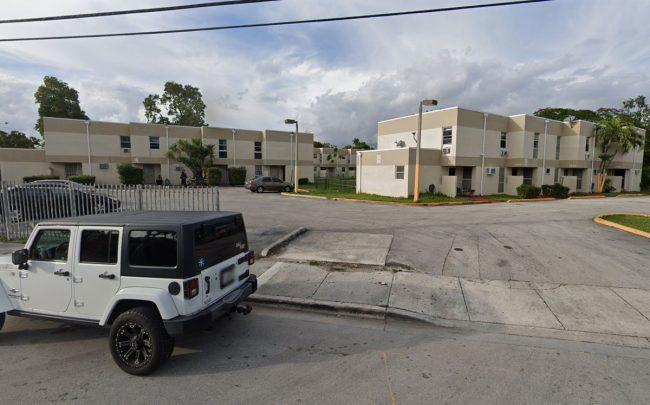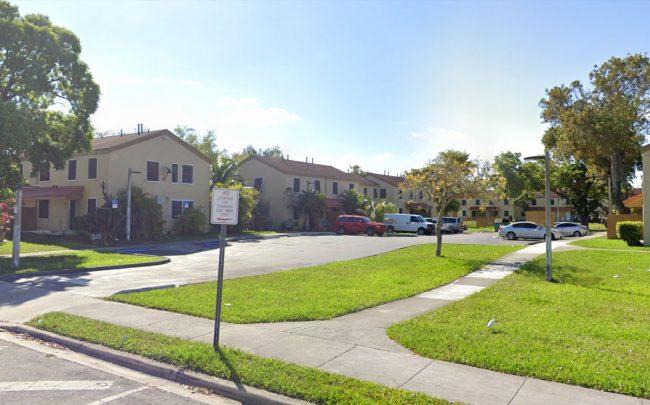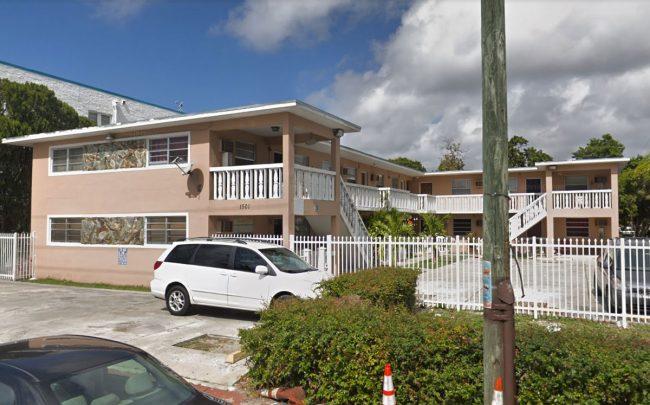Miami-Dade County approved short-term leases that will enable three developers — the Related Group, Centennial Management Corp. and Procida Development Group — to redevelop county-owned affordable housing projects in south Miami-Dade.
Approving short-term, 11-month leases, during a commission meeting on Tuesday, was the first step of a longer process under the federal government’s Rental Assistance Demonstration program. Once a developer has established site control and financing, a decades-long lease will be executed.
Miami-Dade aims to redevelop 7,718 housing units under the RAD program. In the case of the three South Miami-Dade projects, the three developers will include hundreds of mixed-income apartments with affordable housing units.

5949 Southwest 68th Street (Credit: Google Maps)
RUDG LLC, which is affiliated with the Miami-based Related Group, beat four other competitors for the right to turn the 58-unit South Miami Gardens at 5949 Southwest 68th Street into a 480-unit facility with 58 apartments earmarked as affordable.

11351 Southwest 216th Street (Credit: Google Maps)
Centennial Management Corp., based in Miami Lakes, beat out two rivals with its plan to transform the 289-unit Arthur Mays Villas at 11351 Southwest 216th Street with a 672-unit project that includes 289 affordable units.

1501 Southwest 6th Street (Credit: Google Maps)
Procida Development Group of New York was unopposed in its bid to rebuild the 150-unit Homestead Gardens at 1501 Southwest 6th Street into a 300-unit building with 150 affordable units.
A pair of aging affordable housing projects in Perrine were going to be awarded to Miami-based Atlantic Pacific Communities, but that was delayed after its competitor, Miami-based Pinnacle, filed a bid protest.
Pinnacle claimed its bid to redevelop Perrine Gardens and Perrine Villas was sunk by the low scoring from a single member of the selection committee.
Pinnacle’s lobbyist, Miguel Diaz de la Portilla, a former county commissioner, claimed that Pinnacle’s concept, which was not included in the county commission agenda, was superior and would have netted between $12 million and $14 million more in revenue for Miami-Dade than Atlantic Pacific’s. Pinnacle’s proposal also included a “homeownership component” that would help “take people out of poverty,” Diaz de la Portilla added.
Atlantic Pacific planned to build a pair of mixed-income rental projects totaling between 758 and 918 apartments, with 178 units designated as affordable, once it obtained a 75-year-lease with the county. The firm was also going to pay the county a lump sum of $10,000 per unit, 10 percent of its revenue from the project, and $1,700 a month to the county’s Public Housing & Community Development department during construction.
Built in 1975, the 13.5-acre Perrine Gardens currently has 158 affordable units in several low-rise buildings. The 37-year-old Perrine Villas, which is 3,200 feet away from Perrine Gardens, has 20 units on a 2-acre site at 10000 West Jessamine Street. It’s also a half-mile away from a county-owned parcel where Atlantic Pacific wants to build Quayle Roost Transit Village, consisting of 500 units, including 140 affordable units.
Atlantic Pacific’s lobbyist, Miguel de Grandy, told commissioners that Pinnacle only complained about the scoring process of the selection committee “after the game is played and the players have left the field.” He insisted there’s no evidence that a single-member of the selection committee changed the total scoring in which it earned the most points. “Pinnacle had to find an issue where none existed to build its house of cards, but like any house of cards it falls when the winds of actual facts [blow,]” de Grandy said.
Staffers from the county’s Internal Services Department and Public Housing & Community Development also said they found no evidence that Pinnacle’s bid was killed by a single selection member’s scoring. Namita Uppal, the county’s chief procurement officer, said after she eliminated the highest and lowest scores, Atlantic Pacific’s proposal still won.
Still, Pinnacle co-founder and partner Dave Deutch asked county commissioners to either award the contract to his company, or refer the bid to the county’s housing committee on Oct. 20.
In the end, the decision on what to do next was deferred to the area’s district commissioner, Dennis Moss. “I am sitting here smiling because we have two outstanding organizations that are fighting over the [right to develop] some of our public housing units in Miami-Dade County,” Moss said. The commissioner then suggested that a “hearing examiner listen to the evidence of both sides of the aisle.” Under county ordinance, a hearing manager can be someone affiliated with the American Arbitration Association or among a “list of private attorneys.”
This week, Pinnacle secured $30.8 million of financing to build an affordable housing development for seniors, called Cannery Row at Redlands Crossing, at 14380 Southwest 216th Street in south Miami-Dade County.
